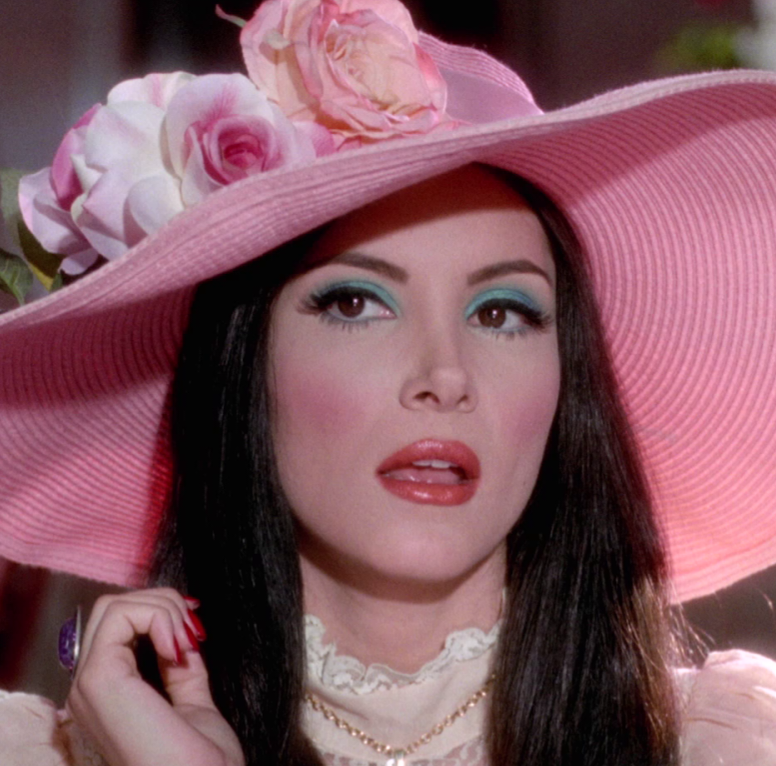Like, the only reason countries exist is because some rich guys decided that they ruled this chunk of land, and everyone else just kinda said “Yeah, whatever, I don’t really give a shit, just let me farm and leave me the fuck alone”.
Then the rich guy on the next bit of land said “I want a bit of what he’s got going on”, and before we knew it, all the bits of land were ruled by people who’s only claim to them was that they were the first to have the idea.
Fast forward a few thousand years, and some of the bits of land are ruled by people who wear gold hats and spout a load of bollocks about divine right, while some of the bits of land are ruled by people who convinced the rest of the people to let them do it, and really, there’s no difference between, like, France and Spain, but some old dudes drew a line and said “Nah, that bit speaks this version of a language, and that bit speaks another version of it”.
You ever think about that?
Yeah 100%. Mohawk Interruptus by Native scholar Audra Simpson is a must-read piece of scholarship on this topic. If you’ve never thought about this before, it will literally blow your entire mind. Highly recommend.
Territory is a concept that transcends the human species; it’s not all that weird. We simply don’t do it by rubbing our scent glands on stumps and rocks.
To say that there’s no difference between France and Spain is a bit disingenuous. Outside of colonialism, the lines are less arbitrarily drawn and moreso organically evolved along with language and culture in a context where wide communication is rare. That and fighting for control, of course.
It sucks that we don’t have universal peace such that borders are unnecessary, but that’s life down to the simplest organism. Governments need borders, and shitty as they are it’s our only path toward societies that are more fair than pure natural competition.
Not just territory, but social stratification and ingroup-outgroup dynamics are present in nearly every social species of animal. Some are more strict and/or violent about it, but everything from fish to birds to other primate species have social hierarchies, a concept of territory, and a willingness to fight over both. Great apes have been documented conducting violent wars with other troupes over territory and resources.
I have to say that I’ve always found the argument that “X is an tool of control by the rich!” to be reductive. The implicit (or sometimes explicit) corollary is that “X” is therefore arbitrary, artificial, and bad, whereas I tend to think that usually inverts cause and effect. “X,” whether it’s social hierarchies, the concept of property ownership, or in this case territorial boundaries, are more often than not rooted in some innate social instinct that can often be found not just in people but throughout the animal kingdom. The powers-that-be may well be manipulating those behaviors to their benefit, but that doesn’t mean that the solution is to deny that they are innate and claim that we can make a better society if we could only ignore them hard enough. You have to make changes keeping in mind the limitations of the human mind and behavior if you want to create a viable real-world solution.
Not only is it reductive, but it’s also a rather lacking analysis in terms of richness.
As you say, territorialism and social hierarchies is common.
Animals don’t value each other on the basis of their bank accounts, and neither did humans.
Money and wealth are fairly modern concepts. So are nations, but the point I’m trying to make is that we divided land into territories long before wealth had anything to do about it.
And while having territories definitely cause some issues it also creates a common cause. If it’s your household, your neighborhood, your municipality, your county, your nation, or your continent.
But as always, the further close to home the more engaged we are. You are more invested in keeping your house clean than the street outside of it.
Democracy works the same, and it works better on lower levels. On national levels it seems to work less and less.
you’ve explained why borders exist at all, but their current configuration is still arbitrary and mutable and that’s part of the point. we’re watching right now in Ukraine proof that, with sufficient blood and treasure, anyone is capable of looking at the current configuration of borders and saying “nope!”. We watched it happen in 2016 too, when Russia bit off Donetsk and most of the world acted like the new borders were actually the correct borders for all of history and that the theft by violence of huge chunks of land was us just helping transition to the natural state of things. When this war ends and the dust settles between Ukraine and Russia we will treat those borders as though they are ordained by god, too, even though we just watched them change.
As long as people protect their house or land, or any posessions, as long we will have borders of countries. It’s just the extension of what most people want for their own property. We create a system that protects our property within the borders, and then we need to protect those borders in order to protect that system.
I think the founding of civilizations was a big step for humanity and made us progress impressively. The whole thing works because we organize, delegate and collaborate. I guess it sort of follows that organized groups will share the territory among each other and agree on frontiers. Of course there’s been a lot of evil done over territorial conflicts, but I don’t think it’s intrinsic that frontiers are evil. It’s just where the shit plays out.
Yeah I have thought about it, how messed up the whole concept of borders are. They inevitably end up as dividing lines that cut people off from their territory or each other. Then the nation-states that enforce the borders work to create a reality that the borders make sense. Wars are fought, media is created, entire histories are erased!
The results are cataclysmic, as we are seeing now, with endlessly compounding crises. The politicians in this are complicit in everything, as are all the other members of the ruling class, but the real twist of the knife is that the rest of us are too. If we want any chance of survival we must give up our modern conveniences, living instead in a way that regenerates the Earth.
This is unthinkable to a great many people. So much infrastructure is built around a destructive way of life, it is hard to imagine how we could possibly live differently. Paradoxically, it is even harder to imagine how the current state of things can continue in the face of climate disater after climate disaster. We must learn to abandon existing structures of power, to think and act on smaller scales. Learning to live as part of our local environments will be the beginning of the lengthy process to restoring our planet, but it will take a great deal of work, from so very many of us.
Sometimes borders represent the differences between groups of people and what they find important on a range of issues including trade, security, and how they choose to govern themselves. (When those people aren’t being forsably ruled.)
deleted by creator
deleted by creator
On a podcast called Motherfoclóir (it’s about language) someone said something like “the only difference between a dialect and a language is an army.”
I’ve been very slowly reading a book called “The Dawn of Everything” by David Graeber and David Wengrow. It has mostly covered agriculture so far, and has challenged the idea that caveman is less than hunter gatherer which is less than farming. But it has also noted how evidence shows just how fluid people were with where they lived for so long.
For so much of humanity people have just decided that they weren’t happy with where they were living and would just up and leave or travel or visit distant people who recognized them as relatives. For some reason in the time since we have culturally decided that money and property are paramount and that dedication to accumulation of things makes us less able to move around. Hard governmental borders and property existed then too, it just wasn’t the nearly universally agreed upon method of existing.
I’ve enjoyed the book so far and I would recommend it if you are open to reading non-fiction, I think it gets pretty close to this topic and might even cover it too
Well, it certainly challenges many aspects of how I think about the very-long-ago past. Looking at the contents of the book and the work of David Graeber in general, this just became the book I will start reading after I finish the current one. Thanks for the very interesting suggestion!
I think about things like this all the time. Take the Louisiana purchase, the Americas “bought” a swath of land from the french. The French barely “controlled” any of it, and the concept of them “owning” it was completely theoretical. The Native Americans were the only people living in the majority of it. Rich people doing rich people things. Crazy
I think you over oversimplifying somewhat. Most countries have a very deep history and a long chain of events that leeds to what is now their countries and borders. There has been plenty of kings and rulers of different lands, and wars fought over said land, but again this have evolved a lot over the ages.
One idea you’re touching, that borders aren’t real can be a good one. When astronauts take their first trip to space some of them are almost overwhelmed by whats called the ‘overview effect’. Seeing earth as a blue marble, with no borders and realizing we all share this small island of life we call earth circling around the sun. In this regard it would be nice in a distant future that what country you were born into has no limits to you possibilities in life. and no one will judge you because you live on the “wrong” side of a border.
So yeah, I think about it from time to time.
I think you over oversimplifying somewhat.
Well, yes.
But the maintenance of borders as a means of control is some real rich guy shit.





